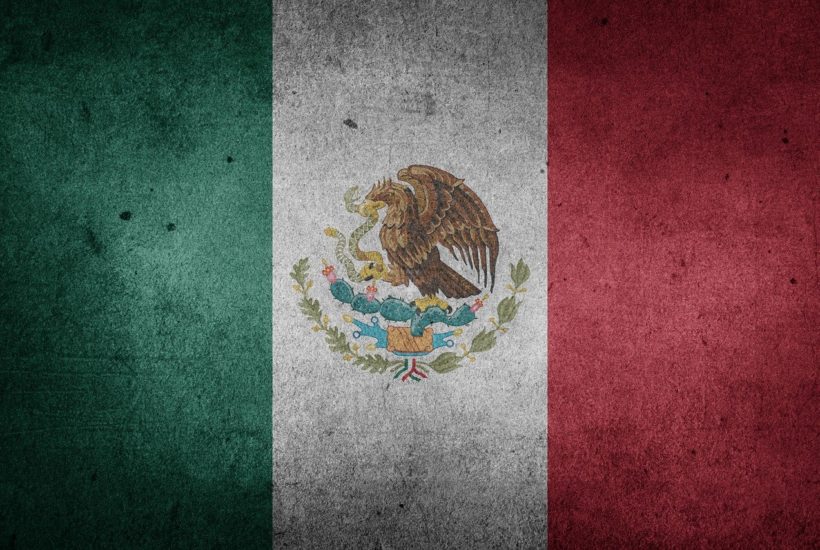Featured
After authorizations, the consolidation of the fintech sector in Mexico will follow
At the end of April, according to information from the CNBV, there were 11 authorized fintech companies, and another 15 on the verge of being authorized in Mexico. For the co-founder and director of Doopla, having the authorization implies being in “the big leagues”, with benefits such as having legal certainty, and the ease of entering into greater corporate alliances.

Once the National Banking and Securities Commission (CNBV) in Mexico published in the Official Gazette of the Federation (DOF) all the authorizations of the fintech companies that will continue with their operations, now in a fully regulated manner, a consolidation of the sector in which there will be mergers and acquisitions cannot be ruled out, said Juan Carlos Flores, co-founder, and director of Doopla.
A few days ago, the official notice was published authorizing this crowdfunding platform, which already has more than $14.95 million (300 million pesos) in loans and more than 750,000 registered users, to continue with its operations.
“I believe that the ecosystem will be consolidated, and in general terms we will strengthen the companies,” Doopla’s co-founder said.
He added: “We also do not rule out, maybe not next year, but by 2023, consolidation processes in terms of mergers or acquisitions. I think we will also be observing this.”
At the end of April, according to information from the CNBV, there were already 11 fully authorized fintech companies, and another 15 on the verge of being published, but with some requirements yet to be met.
In an interview, Juan Carlos Flores highlighted that, with a fully regulated ecosystem, we will also see a greater adoption of this type of platforms by users, and more robust companies on fronts such as fraud prevention, risk management and cybersecurity, to mention just a few. “At the end of the day, the beneficiary is going to be the investor.”
However, he also pointed out that there will be challenges such as scaling and continuing to grow, but now in a regulatory environment; in addition to continuing to battle with the economic crisis derived from the COVID-19 pandemic.
“It is a fact that this year and next year we will continue to deal with the economic crisis; taking care of credit origination; taking care of the management and administration of collections,” he said.
If you want to read more about the fintech sector in Mexico and to find the latest economic news in the world, download for free the Born2Invest mobile app.
It implies being in “the big leagues”
For the co-founder and director of Doopla, having the authorization implies being in “the big leagues”, with benefits such as having legal certainty, institutionalizing processes and activities, and the ease of entering into greater corporate alliances.
But also, he says, this increases the possibilities of institutional investors entering Doopla. “Both to fund our day-to-day operations, as well as to fund credit applicants. The fact that there is institutional funding has many implications: imagine that large investment funds can be co-investors of individuals”.
In addition, he pointed out that it increases user confidence. “It is also a message of tranquility and confidence for the thousands of users, because it tells you that, being a regulated financial institution, our operations are supervised, monitored, monitored and audited by the National Banking and Securities Commission”.
It was not a simple process
Juan Carlos Flores recognizes, however, that finally obtaining the authorization was not a simple process, since in Doopla’s case it involved 30 months of work, a significant investment of resources and human capital, and more than 150 documents submitted to the CNBV.
“This authorization was finally formalized, and as of April 30 we are now a crowdfunding institution, a regulated financial technology institution,” he emphasized.
__
(Featured image by Chickenonline via Pixabay)
DISCLAIMER: This article was written by a third party contributor and does not reflect the opinion of Born2Invest, its management, staff or its associates. Please review our disclaimer for more information.
This article may include forward-looking statements. These forward-looking statements generally are identified by the words “believe,” “project,” “estimate,” “become,” “plan,” “will,” and similar expressions. These forward-looking statements involve known and unknown risks as well as uncertainties, including those discussed in the following cautionary statements and elsewhere in this article and on this site. Although the Company may believe that its expectations are based on reasonable assumptions, the actual results that the Company may achieve may differ materially from any forward-looking statements, which reflect the opinions of the management of the Company only as of the date hereof. Additionally, please make sure to read these important disclosures.
First published in El ECONOMISTA, a third-party contributor translated and adapted the article from the original. In case of discrepancy, the original will prevail.
Although we made reasonable efforts to provide accurate translations, some parts may be incorrect. Born2Invest assumes no responsibility for errors, omissions or ambiguities in the translations provided on this website. Any person or entity relying on translated content does so at their own risk. Born2Invest is not responsible for losses caused by such reliance on the accuracy or reliability of translated information. If you wish to report an error or inaccuracy in the translation, we encourage you to contact us.

-

 Cannabis1 week ago
Cannabis1 week agoAurora Cannabis Beats Expectations but Faces Short-Term Challenges
-

 Crowdfunding5 days ago
Crowdfunding5 days agoSavwa Wins Global Design Awards and Launches Water-Saving Carafe on Kickstarter
-

 Biotech2 weeks ago
Biotech2 weeks agoAsebio 2024: Driving Biotechnology as a Pillar of Spain and Europe’s Strategic Future
-

 Business10 hours ago
Business10 hours agoDow Jones Nears New High as Historic Signals Flash Caution
























